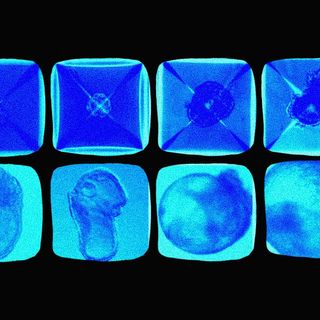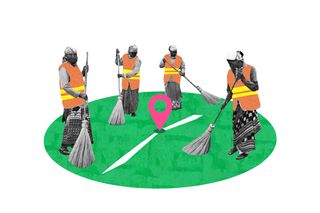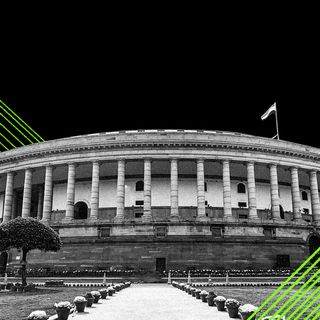
Chandigarh Govt Is Using Watches to Track Sanitation Workers. We Ask an Expert Why It Violates Their Rights.
Employing technology “against people who have already been discriminated against is obviously going to cause more harm than they have faced historically.”

Last week, the Internet Freedom Foundation in a tweet mentioned that the Chandigarh Municipal Corporation, while responding to a Right To Information (RTI) request, revealed that it had been using tracking watches to keep an eye on sanitation workers since 2020. There are existing reports on workers in Haryana and Rajasthan being subjected to advanced surveillance for assessment of their work. The technology used in these surveillance apparatuses is invasive, dehumanizing, and has left the workers severely disadvantaged.
The Swaddle’s Amlan Sarkar spoke to Anushka Jain, Associate Policy Counsel (Surveillance & Transparency) at the Internet Freedom Foundation to better understand the implications of using advanced surveillance technology on workers, and to explore the nexus of surveillance, labor, and caste.
The Swaddle: Why is the use of surveillance technology to track sanitation workers concerning?
Anushka Jain: It’s important to understand that while any employer has the right to assess the quality of the work and whether the work is being done, it cannot be a disproportionate response to the aim that they want to achieve. In a landmark ruling on the Right to Privacy, the Supreme Court of India had said that to justify state intrusion into the privacy of citizens, the state has to make sure that it fulfills certain thresholds — legality, necessity, and proportionality — and it also needs to have procedural safeguards in place to ensure that no misuse happens.
Legality means that there needs to be a law to make sure that there is a framework in which these actions take place — which in this case is missing. A municipal corporation order or any other government authority order saying that they’re going to use it (surveillance technology) does not mean that they have provided the action with a legal framework that would provide support to how the use is going to take place, and to ensure that no misuse happens.
Necessity means that the purpose for the invasion of privacy should be a legitimate cause that requires such an invasion. According to the reports that we have been able to access, the aim of these watches — not just in Chandigarh, but also in other places like Nagpur, Lucknow, Noida — is to ensure attendance; that nobody else is doing the work that somebody has been allotted; and that the work is getting done. All of these purposes can be fulfilled in other, much less intrusive manners.
The third threshold — proportionality — says that the intrusion has to be proportionate to the invasion of privacy. For the purpose of attendance and ensuring that work is getting done, imposing these devices on the sanitation workers is a very disproportionate response. They track each and every movement of the workers; they have a camera and a microphone. These features can lead to a very, very serious invasion of privacy, which is not required for the purpose that they want to achieve.
This is why we filed an RTI request, and the response confirmed our suspicion about how this technology is being used and how disproportionate the use of this technology is.
TS: What are the implications of using surveillance technology on workers?
AJ: When it comes to workplace surveillance, what is necessary to understand is that there is a power equation. Surveillance can lead to opportunities in which the person holding power can misuse the information that they have collected. Any workplace — not just sanitation workers — if surveillance is being conducted, the employee cannot stand up for their rights, because they don’t have any legal framework to point to and say, “you are violating this,” to employers. In such a situation, the employer can almost do anything that they want, and the employees are totally at their mercy. We’re seeing this happen to not just the sanitation workers. A lot of people who work in IT companies or law firms work with extremely invasive software that has been downloaded onto their computers, which is how their employers monitor their work. Screen usage, keyboard strokes — each and every step is being tracked. This level of surveillance can be really harmful to the mental health of a person, and also lead to a violation of freedom of speech. A lot of employees can’t voice their opinions about any misgivings with their employer, or any demands that they have with the employer. They can’t even discuss it with their co-workers, because they’re monitored to the extent that anything that they say or do can reach their superior. We don’t want to be at the mercy of good employers; we want to ensure that all employers have to follow certain conditions. And there have to be certain checks and balances that if they don’t follow those rules, there is some recourse that is available.
Related on The Swaddle:
Asia Is the World’s Surveillance Hotspot, Aiding Authoritarianism in the Covid19 Era: Report
TS: Several employers are justifying increased surveillance on their workers as a WHO-mandated step in the wake of the pandemic. Why is this problematic?
AJ: In terms of how different technologies have been used, from the Arogya Setu app, to drones, to any other kind of technology for facial recognition, all add up to a data collection exercise. The government authorities say that they do it for public health, but in the absence of a data protection law or any legislation regulating how this data collection exercise works, you never know how your information is going to be used after the purpose for which you provide it is fulfilled because there’s also no mandate. There’s no condition that the government has to delete your data or has to stop using your data. So, once they have collected the data, they can do whatever they want, which is really harmful. For instance, with the Arogya Setu app, we saw that a lot of information — including location data — was collected, and all of this happened for some period of time without any data protection policies. Eventually, they introduced a data protection policy for the app, which has now lapsed. In this situation, again, we are at the mercy of the authorities that are carrying out this exercise to make sure that they don’t misuse our data, or that there’s no cyber security threat to our data, but there’s nothing that protects us or gives us recourse if something bad happens.
TS: Can the implications of excessively surveilling Safai Karamcharis invariably amount to targeting marginalized communities? Who has access to the data and how can it be potentially used against these communities?
AJ: While caste and class are separate categories, they are very deeply intertwined. Sanitation workers especially belong to communities that have been historically discriminated against, which are economically weak, and are weak in the sense of political power. And in such a situation, it’s very easy to dehumanize these communities because of the existing caste bias that is there in the country. It’s very important to again look at the ways in which power plays out in these categories because it’s a person belonging to an upper class or upper caste who is going to surveil somebody belonging to a lower class or lower caste. In such a situation, people who have been historically discriminated against are once again at the mercy of the people who have discriminated against them. Caste definitely has a bearing on the whole situation, because it is still a very important factor not just in rural India, but also in urban India. So, even though Chandigarh is a very urban city, there is no denying that such kind of caste-based discrimination is still taking place there.
TS: And can surveillance worsen the existing caste divide?
AJ: The level of invasion that surveillance technology allows for is unprecedented. The use of these kinds of technologies against people who have already been discriminated against is obviously going to cause even more harm than they have faced historically. For example, the use of CCTVs to surveil certain areas where people belonging to marginalized communities reside, will lead to an over-policing of these communities — who were already historically over-policed — even more. All of us know that a lot of police brutality happens in India, a lot of people are in jail without trial. These technologies help the police [or the state] track things that might not have been an issue were it to happen in an urban, economically forward area of a city, but would probably lead to an arrest in an area where marginalized people reside. And CCTV is not even an advanced surveillance technology, but its use can lead to a lot of harm. Similarly, the use of any other kind of surveillance technology will also cause disproportionate harm to these communities.
TS: Is worker surveillance a labor rights issue that affects all of us? What are our existing protections against it, if any, and who is protected?
AJ: It’s definitely a labor issue. If workers are being surveilled, they can’t speak up about any issue they might be facing. One of the ways in which union-busting happens is through surveillance, through tracking each and every movement of people who are trying to unionize and making sure that they don’t unionize. So workplace surveillance is certainly a labor rights issue, because it affects how workers are able to wield their other rights. In the absence of privacy, they will not have freedom of speech, they will not have the safety to voice their opinions to their peers. They will not have the ability to raise their demands to their superiors as well, because the superiors might have some information about them, which they might misuse. So it’s definitely a labor issue. In terms of protection, we don’t have any protection under any law, which relates to privacy, as we don’t have a privacy or a data protection law.
Amlan Sarkar is a staff writer at TheSwaddle. He writes about the intersection between pop culture and politics. You can reach him on Instagram @amlansarkr.
Related


Only 0.3% of Parliament Questions in the Last 20 Years Were About Climate Change: Study
